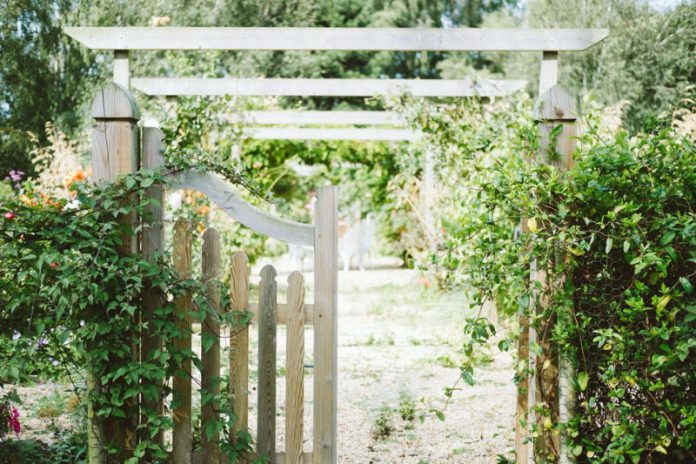Gardens are a sanctuary, a place of beauty and tranquillity, teeming with vibrant flowers and luscious greens. But they can also attract unwanted wildlife with their lush offerings. These animals can cause considerable damage, turning your labour of love into a buffet. So how can you protect your garden from these uninvited guests? Carry on reading to find out the best ways to protect your garden from unwanted animals.
Why is it a good idea to protect my garden from unwanted animals?
Protecting your garden from unwanted animals is not just about preserving the aesthetics of your garden, but it is also crucial for maintaining the health of your plants. Unwanted wildlife can spread diseases, gnaw on the stems, and consume the leaves, leading to stunted growth or even the death of your plants. Additionally, certain animals can damage the structure of your garden, causing soil erosion and disturbing the natural ecosystem. Therefore, implementing effective protective measures is essential to preserve your garden’s integrity, ensuring it continues to thrive and provide you with the joy and peace it was intended to.
Your own pets may also be at risk from other animals in your garden. Keeping unwanted animals out of your garden also helps to protect your beloved pets from potential harm. Many animals are territorial and can become aggressive towards other animals, posing a danger to your pets who may not be able to defend themselves. By protecting your garden from unwanted animals, you are also ensuring the safety of your furry friends.
7 effective ways to protect a garden
Identify the culprit
Determining who is eating what is necessary in order to select the appropriate type of management strategy, such as the height of any necessary fence. Keep an eye out for warning indicators:
- Deer may rip woody plants or leave trails in the ground. They may also produce neat cuts on herbaceous plants.
- Rabbits can leave pellet droppings and cut sharply on both woody and herbaceous plants.
- Squirrels will dig up flower bulbs and crack nut husks or shells.
- Before you even realise the fruit is ready, birds will peck holes in it or take it.
Install a fence
One method is to install fencing. High fences and buried wire barriers can deter animals like rabbits and deer. For smaller pests like moles, consider a mesh or wire fence buried about a foot deep. Remember to regularly check for holes or damages that these critters might exploit.
For small mammals, the least expensive options are hardware cloth, chicken wire, or rabbit fence. For most deer fencing, a fence at least six to eight feet high would do, and tiny edible shrubs, such as berries, can have plastic bird netting placed over them before they develop.
Repellents
Another approach is to use repellents. There are a variety of safe, non-toxic animal repellents available in the market. These can range from odour repellents that mimic predator scents to taste repellents that make plants unappetizing to animals.
Cayenne pepper is another natural repellent, but it can also upset your pets. Plenty of capsaicin, found in cayenne, is utilised as a natural, biochemical insecticide since it is so irritating. In order to deter animals, if you don’t own pets, sprinkle cayenne around your plants or create a cayenne spray. Coffee grinds and cinnamon are also useful in preventing pests like slugs and snails from devouring your plants, as well as rabbits.
Trim hedges
The majority of animals seek both food and a place to hide from predators. You can make your backyard less secure for any animals that eat your plants and hide behind them by cutting back any ground cover, such as overgrown bushes and tall grasses.
You’ll need to know what kind of wildlife frequents your yard and where they like to hide in order to determine what has to be chopped back. After that, you can redesign your garden and remove any potential hiding places using your newly acquired knowledge.
Plants
Planting specific types of plants can also keep animals away. Some animals are deterred by plants with strong scents, prickly surfaces, or a bitter taste. For instance, marigolds are known to repel rabbits and deer, while lavender and rosemary are unappealing to many small mammals.
Noise
Using noise and light can scare off many animals. Wind chimes, motion-activated lights, or ultrasonic devices can keep animals at bay. Just be mindful of your neighbours when using these methods!
Keeping the garden tidy
Finally, maintaining a clean garden can prevent attracting animals. Regularly clean fallen fruits or nuts, cover compost piles, and secure trash cans to prevent these from becoming food sources.
These strategies can help protect your garden from unwanted animals. Yet, it’s important to remember the role that wildlife plays in our ecosystem. A balance can be achieved by creating a garden that’s both inviting to beneficial wildlife and discouraging to potential pests.
Closing Thoughts
In conclusion, protecting your garden from unwanted animals is about understanding their behaviour, needs, and dislikes. By employing a combination of these methods, you can keep your garden thriving and coexist with the wildlife in your area.
County Fencing are experts in protecting your land from unwanted visitors, and offer a range of fencing applications and bespoke fences to deter a range of animals.
Remember, a well-protected garden is a bountiful garden, and the reward is worth the effort!















